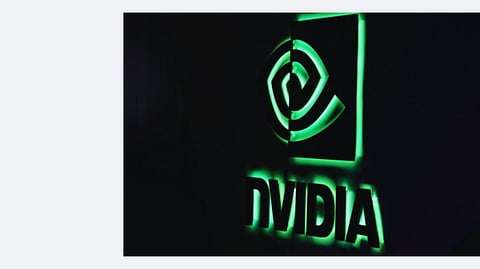

Samsung Electronics has advanced in the global semiconductor market after reports confirmed its 12-layer HBM3E memory chips passed NVIDIA’s performance tests. The qualification marks a crucial step for Samsung as it works to expand its role in supplying high-bandwidth memory used in artificial intelligence accelerators.
According to industry sources, NVIDIA is expected to finalise certification of Samsung’s chips soon. The approval comes at a time of strong demand for AI hardware, with HBM playing a central role in powering advanced models such as ChatGPT and DeepSeek.
The development lifted Samsung’s stock nearly 5% in South Korea on Monday, sending the shares to a one-year high. US-listed shares also recorded gains, while competitors such as Micron posted declines due to growing competitive pressure.
If NVIDIA grants final approval, Samsung could gain ground on SK Hynix, the current leader in the high-bandwidth memory market. Analysts say this step gives Samsung a chance to re-establish itself as a trusted supplier for advanced AI systems.
NVIDIA, the top player in the AI chip market, is broadening its supply chain to manage risks and meet rising demand. Bringing Samsung on board would give it more flexibility while easing reliance on SK Hynix and Micron.
Goldman Sachs said the certification would help rebuild Samsung’s credibility after earlier delays raised concerns about its HBM readiness. Analysts added that large-scale shipments will still hinge on production yields, pricing, and final customer approvals.
The qualification lifted investor sentiment, with Samsung shares up about 20% this month on the Korea Exchange. Analysts, however, caution that near-term shipments to NVIDIA will remain limited. Most of NVIDIA’s 2025 supply needs have already been allocated to SK Hynix and Micron.
Even with the current limits, the approval positions Samsung for stronger competition from 2026 onward. Analysts also point to potential memory shortages next year, which could work in favour of major suppliers like Samsung.
For NVIDIA, bringing Samsung on as a supplier would make its supply chain more secure, help roll out new products on schedule, and keep costs under control. For Samsung, it signals real progress in expanding its AI memory and contract-manufacturing business.
Market watchers say the next signals to look for include updates on production yields, confirmed purchase orders, and public validation from key accelerator customers. Until those steps are clear, they view the certification more as a technical milestone than a guaranteed commercial deal.
Also Read: AMD Stock Drops 5% as Intel and NVIDIA Seal $5 Billion AI Chip Partnership
